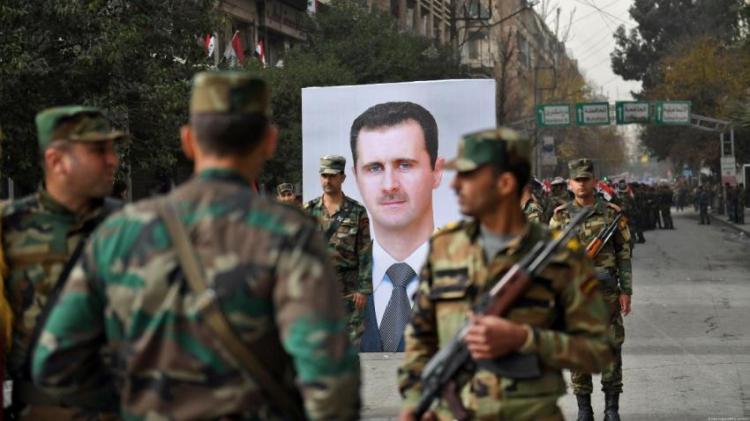Syrian President Bashar Assad hasn’t won the 9-year civil war, but has only barely survived, Charles Lister, a British researcher and a Senior Fellow at the American-based Middle East Institute, said in an online seminar on Tuesday.
The webinar titled “Opportunities for Foreign Policy: Assad’s New Syria” was held by the LA World Affairs Council with the aim of discussing Syria’s future after a nearly decade-long civil war in the country.
In his opening statement, Lister summarized the US strategy in Syria as “containment,” stating that the US has been “largely risk-averse in terms of [its] assertiveness against Russia and Iran, two primary backers of the Assad regime…in terms of the Trump administration, the Iran angle to the Syrian crisis has been front and center.”
Lister ended his opening statement by claiming that though ISIS was often the center of media attention, the Syrian government has allegedly been responsible for 88% of deaths in the Syrian war, while ISIS was responsible for only 2%.
“Assad hasn’t won, he’s survived,” he said.
“But by surviving, he has destroyed half the country,” Lister concluded.
The webinar was attended by three panelists, including Lister with President of the Syrian American Council Dr. Zaki Lababidi and founding member and researcher at Rojava Information Center Thomas McClure.
Over the course of about an hour, the panelists discussed the effects of the war, the impending economic crisis, and the effects of the Caesar Act, a series of US sanctions meant to target the Syrian government and its allies.
Meanwhile, Lababidi discussed both the senior and junior Assad presidents, whom he described as “dictators,” lamenting the fact that though the US administration said that Assad’s use of chemical weapons against Syrians was a “red line,” there was no action on the ground in response to this.
Both Lister and Lababidi stressed that those who initially protested against the Syrian government were protesting not for regime change, but for government reform, but that the Assad government prefers to use deadly force against protestors rather than accept their demands.
“In March 2011, Syrian men, women, and children were walking on the streets holding roses, and calling for reform, not regime change. And they were met with machine gun bullets and tear gas…when faced with disenchantment within his own base, Bashar is not going to step down,” Lister explained.
McClure was asked to comment on the situation on the ground in Syria’s autonomous northeast. He stated that though the northeast was continuing a tradition of secularism, human rights, and freedom of speech, they are now facing difficulties.
“The regime is cutting off aid, aided in that by the United Nations under Russian pressure,” McClure added.
Near the end of the seminar, McClure stressed that though the US’s stated goal is the enduring defeat of the Islamic State, “the US is here not to wipe out ISIS, but to insist on a bulwark against Iran.”
(Reporting by Lucas Chapman, edited by Hisham Arafat)

